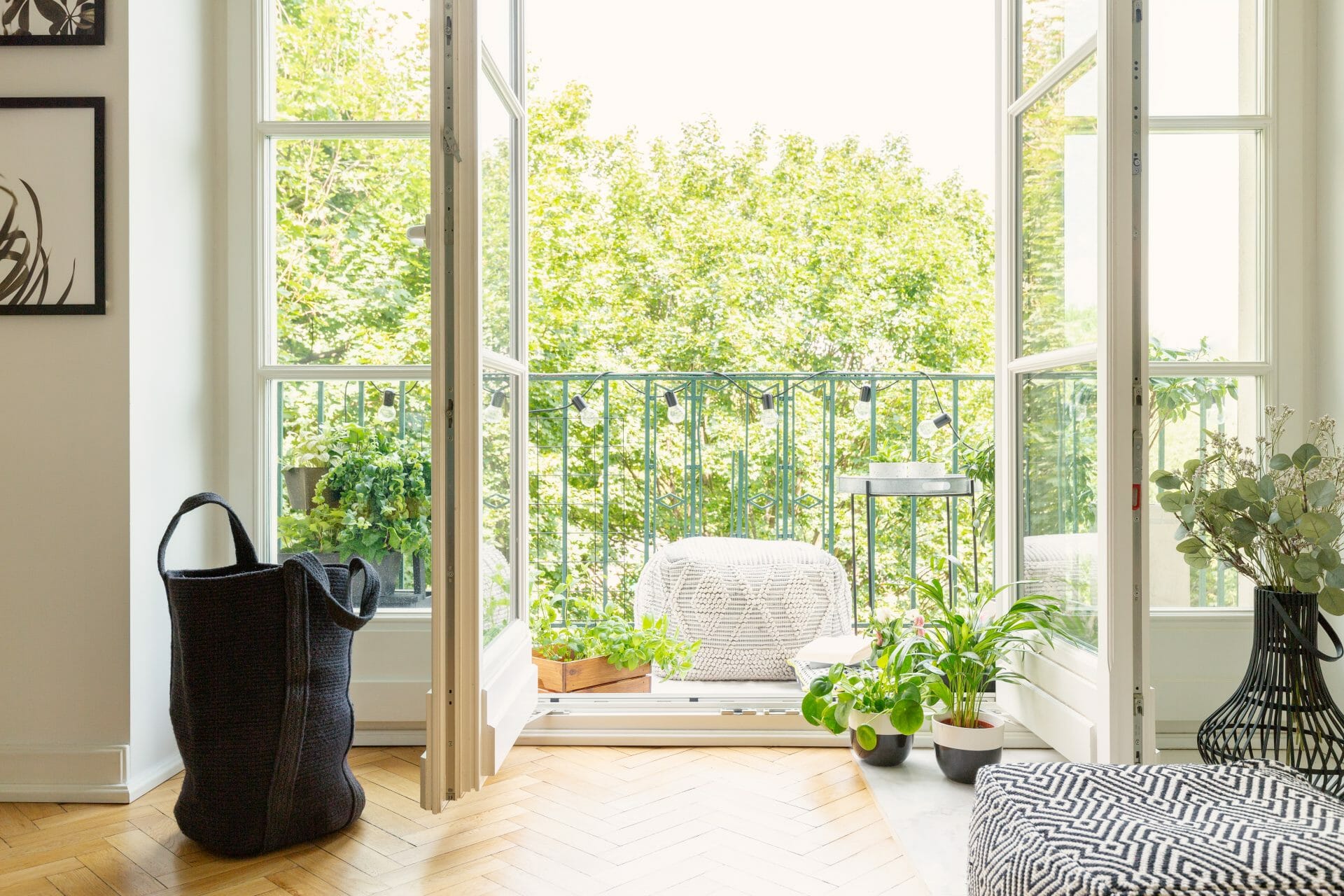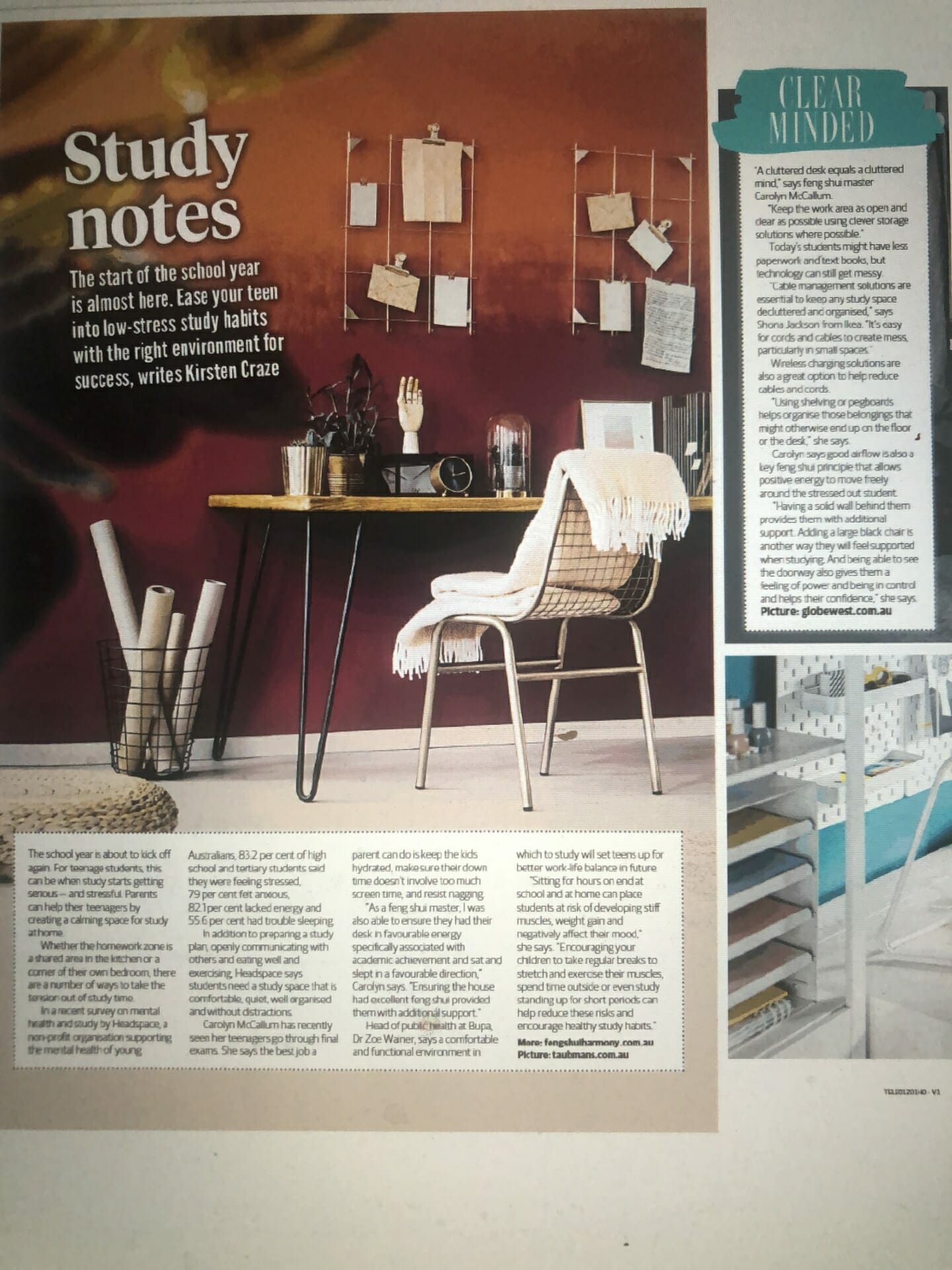Recently I was interviewed by Frock, Paper, Scissors – a Brisbane newspaper about Feng Shui tips for the Bedroom. Here is the result!
Bedroom Blues
We all know that sleep is the quintessential to looking beautiful and feeling awesome. But how many of us are getting the recommended amount of sleep to be mentally sharp, emotionally balanced and full of energy every day. Experts in health, psychology and interior design, Dr Eileen Heyne, Carolyn McCallum and James Hue give us the secrets to getting a good night’s sleep.
Doctor Eileen Heyne believes that sleep is vital for the functioning of the body from all points of view, “Without the regular 6-8 hours of sleep one’s health will gradually spiral downwards and you will end up unwell with suppression of the immune system, infections, tiredness and general misery and woes,” she says. According to the latest national MBF Healthwatch Survey, 51% of Australians say they are not getting enough sleep, while 46 % have been trying to get more sleep.
It was found Aussies blamed a range of factors that interfered with their sleep including full schedules, going to bed late, job stress, family issues such as having young children, and poor sleep patterns. However many of us don’t know that we can improve the quality of our sleep by just making a few simple changes to our bedroom.
James Luu, with a degree in psychology and currently studying interior design understands the importance of sleep, “You sleep for about a third of your lifetime,” he says, “so it is quite vital to ensure your bedroom expresses positive sleep vibes, and there are multitudes of ways to create this.” Dr Eileen Heyne agrees, “Creating an environment which is calm and peaceful for your rest period is vital for our physical and mental wellbeing,” she says.
Feng Shui expert Carolyn McCallum explains this concept using the two major aspects of Yin and Yang. Where Yang concerns activity and Yin applies to inactivity. She states that, “obviously bedrooms need to be as Yin as possible to ensure the cell rejuvenation can occur in the most supportive environment possible, bedrooms should be a place of rest and relaxation”.
Hints and tips are as follows:
-
Keep the bedroom uncluttered – That’s right, the constant pile of clothing on your floor where the only carpet visible is the narrow windy path from door to bed has to go!
-
Only two activities in the bedroom, sleeping and sex – This means keeping everything else out of your ‘sleeping chamber’ to avoid distraction, this includes eating so go easy on the ‘breakfast in bed’.
-
Laptops, desktops and TV’s are cast out – the lighting sends out bad non-sleeping signals!
-
Blinds or shutters – These are more appropriate than curtains as they manage to completely block the sun out! This helps ensure you wake up when you should wake up, rather than from the sun.
-
Pastel and pale wall colouring – if your walls are covered with fluro green or hot pink paint, its time to strike anew. Keep it personal with pale and pastel colouring, light saturation of colours is key!
-
Sustainability – Yes it’s that word again! The chemicals you are using in your bedroom is of prime importance to how you sleep. The scent that comes from these products changes your sleep patterns. Go for low VOC (volitale organic compounds), economically friendly and organic chemicals.
-
The south west corner of the bedroom is the ‘relationship’ corner and a portrait here helps support the couple. Otherwise, if you are single and looking for love, place a pair of mandarin ducks or a picture, painting or sculpture of a happy couple here to increase the likelihood of being lucky in love.
-
It is best not to sleep with your head next to a clock radio – instead put it on the other side of the room so you can still see it but the electric field it emanates will not harm you.




